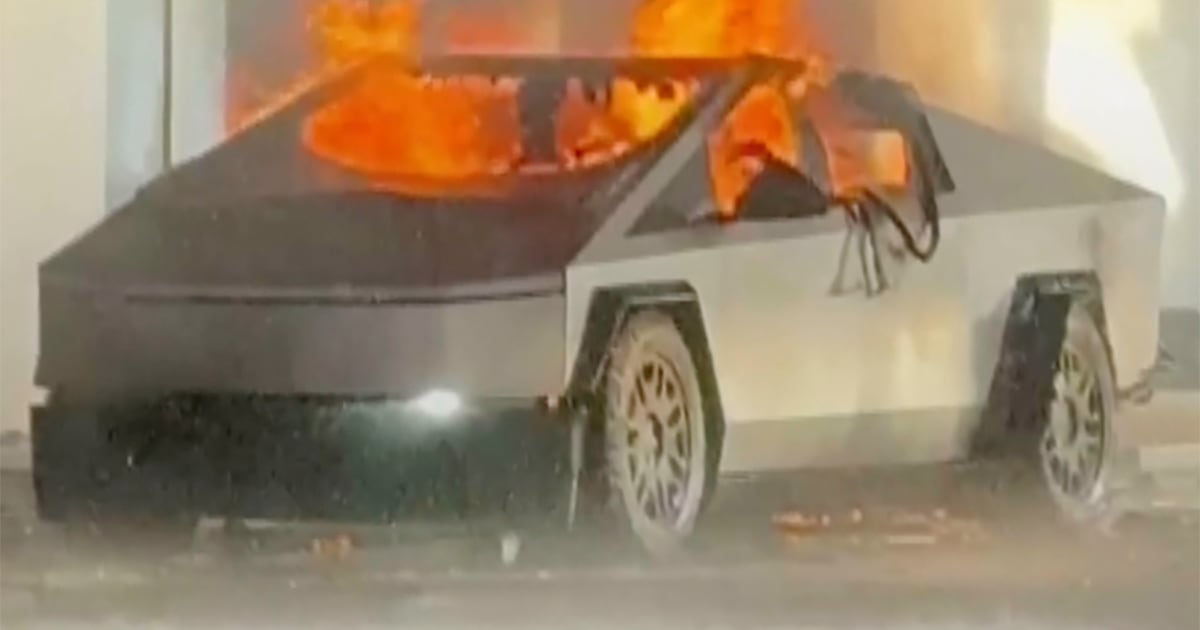This story was originally published on mynorthwest.com.
The Green Beret soldier who fatally shot himself in a Cybertruck that exploded outside a Trump hotel on New Year’s Day has a northwest connection.
He was enrolled in a training program for special operations forces at Joint Base Lewis-McChord four years ago.
Those who knew him believe he showed symptoms of having suffered brain injuries, including concussions. According to The New York Times, an Army nurse who was a friend of Matthew Livelsberger said he was forgetting his words, losing his train of thought midsentence and suffered from insomnia.
Alicia Arritt started a relationship with the 37-year-old Master Sergeant Matthew Livelsberger in the Army’s 10th Special Forces Group in 2018. She said she recognized that many symptoms she saw in Livelsberger were similar to those she had seen as an Army nurse in other combat veterans who suffered brain injuries. They included headaches and depression which kept Livelsberger isolated for days at a time.
On Friday, the head of the F.B.I.’s Las Vegas field office held a news conference and reported that Master Sergeant Livelsberger was a “heavily decorated combat veteran who was struggling with PTSD and other issues.”
Arritt told The Times she met Livelsberger, a native of Colorado Springs, Colorado, in 2018. At the time he had been in the Army for more than a dozen years and had deployed into combat several times, including twice to Afghanistan.
The Times reported the Army soldier had trained for years, jumping from planes and suffering back injuries in hard landings. He had also endured numerous weapons blasts and had lost some hearing after being exposed to explosions and gunfire.
In 2021, Livelsberger enrolled in the Army’s “Advanced Special Operations Techniques” (ASOT) course, an 18-week training program at JBLM for special operations units. But Arritt said he failed to complete the course.
“He couldn’t concentrate,” she told The New York Times. “It was so frustrating for him.”
Arritt said Livelsberger blamed the failure on his traumatic brain injuries.
After dropping out of the program, she said he became paranoid and felt like he was being followed. He also suffered from nightmares that continued for months after he left the training program.
Master Sergeant Livelsberger eventually married another woman and became a father.
Arritt continued her friendship with him and told The Times he was thinking of taking a less demanding support job in the Special Forces. But later he decided to take a leadership job at an American base in Germany.
“He knew he was having problems then, and thought it was related to brain injuries, but he also knew if he said anything, they wouldn’t let him go,” Arritt told The Times.
The Army released a statement in response to The New York Times story, saying Master Sergeant Livelsberger had access to programs provided for mental health and “did not display any concerning behaviors at the time.”
The Times reported the medical examiner’s office in Las Vegas has not said whether it will test Livelsberger’s brain for signs of traumatic brain injury.
On Friday, investigators revealed the contents of notes Livelsberger had left on his cellphone.
The messages said he needed to “cleanse” his mind “of the brothers I’ve lost and relieve myself of the burden of the lives I took.”
In one letter found by authorities, Livelsberger wrote, “This was not a terrorist attack, it was a wake-up call. Americans only pay attention to spectacles and violence. What better way to get my point across than a stunt with fireworks and explosives.”
Tom Brock is a weekend anchor, editor and reporter for KIRO Newsradio.
©2025 Cox Media Group


